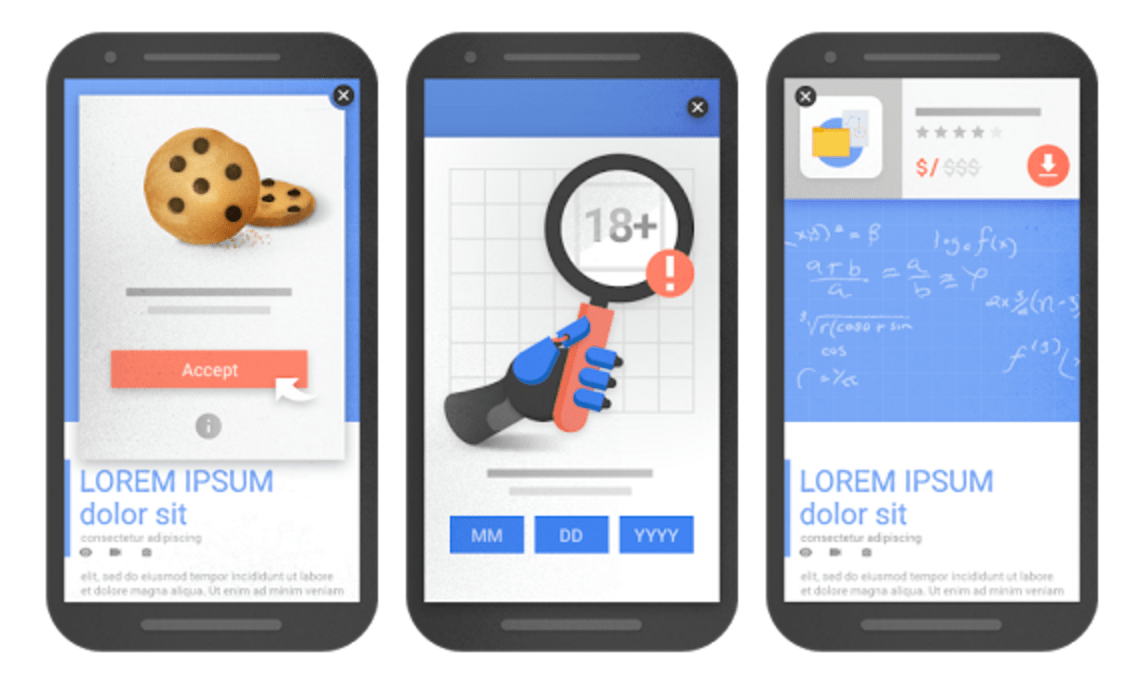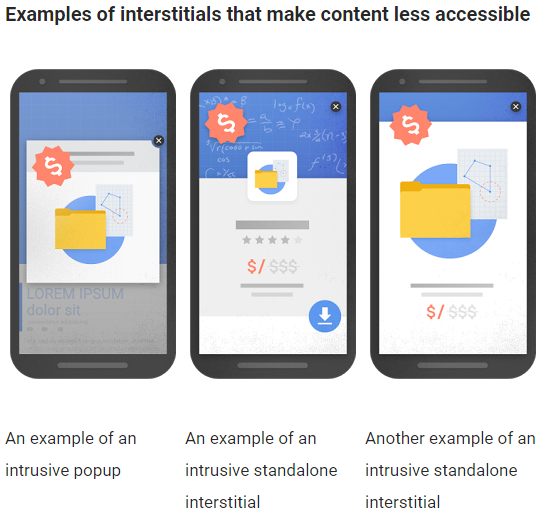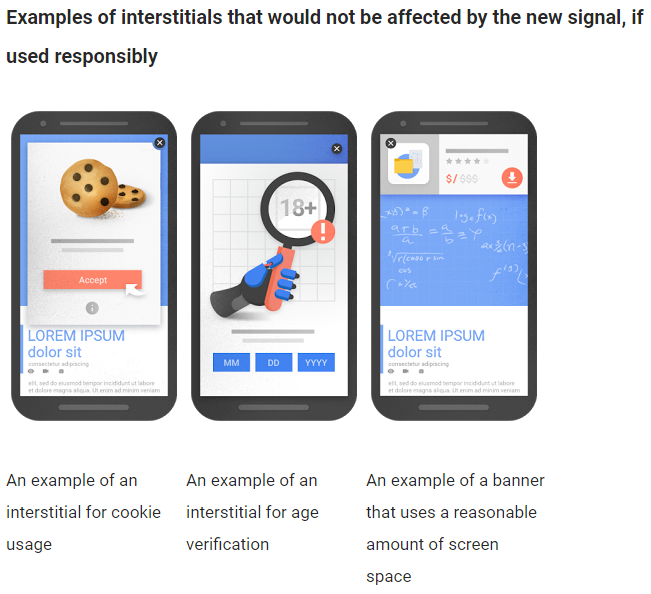Have you ever clicked through on a search result using your mobile phone only to find your page covered by an interstitial ad prompting you to download that websites app instead of browsing the mobile website? Annoying isn’t it? Google thinks so also , so starting January 10th, 2017 Google has announced they will roll out a new ranking penalty which will target specifically those pages in an attempt to make them “not rank as highly“.
To improve the mobile search experience, after January 10, 2017, pages where content is not easily accessible to a user on the transition from the mobile search results may not rank as highly.
Google states that the penalty will only affect pages where the interstitial causes content to not be easily accessible. Here are some examples that Google provides:
- Showing a popup that covers the main content, either immediately after the user navigates to a page from the search results, or while they are looking through the page.
- Displaying a standalone interstitial that the user has to dismiss before accessing the main content.
- Using a layout where the above-the-fold portion of the page appears similar to a standalone interstitial, but the original content has been inlined underneath the fold.
Furthermore here are some examples of techniques that, used responsibly, would not be affected by the new signal:
- Interstitials that appear to be in response to a legal obligation, such as for cookie usage or for age verification.
- Login dialogs on sites where content is not publicly indexable. For example, this would include private content such as email or unindexable content that is behind a paywall.
- Banners that use a reasonable amount of screen space and are easily dismissible. For example, the app install banners provided by Safari and Chrome are examples of banners that use a reasonable amount of screen space.


